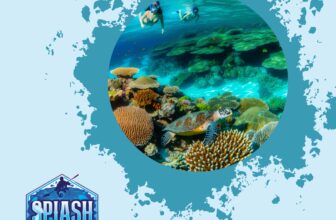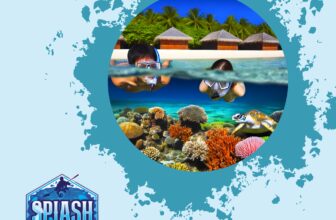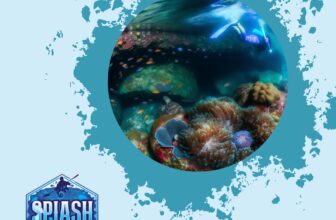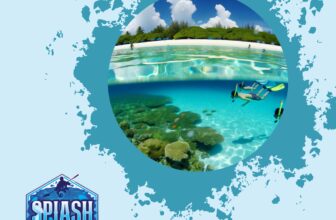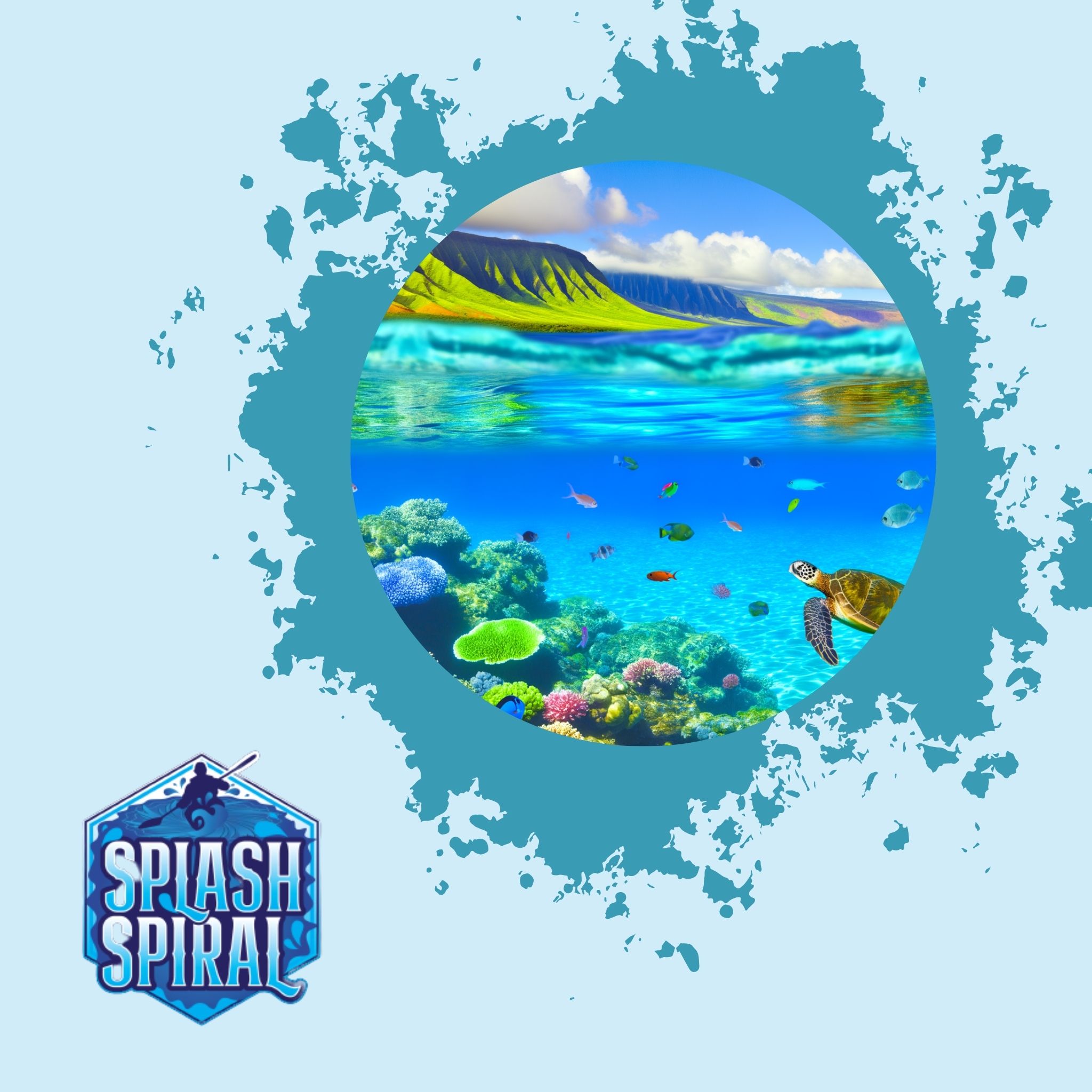
-Word Count: 1500
-Tone of voice: 50% Spartan, Casual
Snorkeling in the Caribbean offers an incredible opportunity to explore vibrant underwater ecosystems teeming with life. However, it's essential to prioritize safety to ensure a memorable and incident-free adventure. This guide will walk you through crucial diving tips, gear advice, and eco-friendly practices to keep yourself and the marine environment safe.
1. Understanding Caribbean Snorkeling Safety
Why Safety is Crucial
Safety isn't just a concern; it's a necessity when snorkeling in the Caribbean. The ocean is a magnificent yet unpredictable environment, and being unprepared can lead to hazardous situations. Potential risks include strong currents, sudden weather changes, and marine life encounters. These dangers are not meant to deter you but to highlight that understanding how to navigate them is key to a safe and enjoyable experience.
Key Elements of Safe Snorkeling
When it comes to safe snorkeling, focus on three primary elements: your personal safety, equipment reliability, and environmental care.
-
Personal Safety: This involves being physically prepared, knowing your limits, and being aware of your surroundings at all times. Hydration, appropriate attire, and buddy systems are all part of this.
-
Equipment Tips: Proper use and maintenance of snorkeling gear like masks, snorkels, and fins can prevent equipment failure that might lead to complications underwater. Regular gear checks can save you from potential mishaps.
-
Environmental Care: Snorkeling isn't just about enjoying the underwater world; it's also about preserving it. By avoiding contact with marine life and using reef-safe sunscreens, you help protect these fragile ecosystems for future explorers.
For an expansive read on top snorkeling spots, check out Top Snorkeling Spots in the Caribbean.
2. Personal Safety Tips
Pre-Dive Preparation
Before you even hit the water, some groundwork can make a big difference. Hydrating well is a must; it keeps your body functioning smoothly and prevents cramps. Alcohol? Save it for after. It dehydrates you and can impair your judgment—serious no-gos for a safe snorkeling trip. Slip into swimwear that’s comfortable and won’t hinder your movements, and slather on some reef-safe sunscreen to protect both your skin and the environment.
Snorkeling Techniques
Get the basics down pat. Breathing through a snorkel can feel strange at first—practice in a pool if you can. Your fins are your best friends; they help you glide effortlessly and save energy. Always remember the buddy system—snorkeling is safer and more fun with a friend. Joining a guided tour? Even better; you'll get expert insights and an extra safety net.
Emergency Protocols
A quick brush-up on emergency protocols can't hurt. Basic rescue techniques are worth knowing—what if your buddy cramps up? Know the simple hand signals for help and other common situations. Pack a whistle or any small, loud signaling device; they can be lifesavers in a pinch.
Enhancing Visibility
Daylight is your best bet. Snorkeling under the sun not only lets you see the vibrant marine life but also ensures you’re visible to boats and other snorkelers. Overcrowded spots can be a hassle. Less elbow room means more chances of bumping into others, and it stirs up sand, reducing clarity. Find a calm, quiet spot for a clearer, safer experience.
Checking Weather and Water Conditions
Don't underestimate Mother Nature. Check weather reports before you head out—rain and storms can make snorkeling dangerous. Learn to read the water; calm, clear conditions are ideal. Understanding tides will help you avoid strong currents that make snorkeling strenuous and risky.
3. Essential Equipment Tips
Choosing the Right Gear
Your snorkeling adventure begins with the right gear. The essentials you'll need are a mask, a snorkel, fins, and perhaps a flotation device for added safety.
When choosing a mask:
- Ensure it fits snugly without being too tight; a leaky mask can ruin the experience.
For the snorkel:
- A simple J-shaped tube suffices, but a snorkel with a purge valve might be better for beginners.
In selecting fins:
- They should be comfortable and firm enough to provide good propulsion.
Considering a flotation device:
- A snorkel vest can offer that extra buoyancy and confidence for beginners.
Snorkel and Mask Maintenance
To keep your gear in top shape:
- Rinse everything with fresh water after use to remove salt and sand.
- Store your gear in a cool, dry place, away from direct sunlight to prevent damage.
Taking these small steps ensures your equipment lasts longer and performs better.
Utilizing Flotation Devices
If you’re new to snorkeling, incorporating a flotation device into your gear can make a world of difference.
Popular options include:
- Snorkel vests: Offer buoyancy without hindering mobility.
- Wetsuits: Provide warmth and a bit of extra floatation, suitable for cooler water temperatures.
These devices help you focus on the experience rather than worrying about staying afloat.
Equipment Checklists
Here’s a quick checklist to ensure you have everything you need before heading out:
- Mask with a proper fit
- Snorkel (consider one with a purge valve for easy clearing)
- Comfortable fins
- Snorkel vest or wetsuit (for flotation and warmth)
- Anti-fog solution for your mask
- Mesh bag for carrying your gear
- Waterproof sunscreen
- Water bottle (stay hydrated!)
For more detailed advice on choosing and maintaining snorkeling equipment, you can explore additional resources here: Essential Caribbean Snorkeling Tips.
With the right gear and a bit of preparation, you're setting yourself up for a fantastic snorkeling experience in the Caribbean.
4. Marine Protection and Eco-Friendly Practices
Understanding Marine Protection
Protecting the marine environment is vital for preserving the stunning ecosystems that draw snorkelers to the Caribbean in the first place. Without responsible practices, the delicate balance that allows coral reefs and marine life to thrive can be disrupted, leading to long-term damage. Snorkeling can impact marine environments through physical contact, pollution, and even the chemicals in standard sunscreens.
Coral-Friendly Tours
When booking your snorkeling adventure, prioritize tours that emphasize coral conservation. These operators often follow strict guidelines to minimize human impact on reefs. Simple actions, like avoiding touching corals or other marine animals, can make a significant difference. Touching corals can harm these fragile organisms, while disturbing marine life can lead to stress and behavioral changes in the animals.
Sustainable Snorkeling Practices
Using reef-safe sunscreen is one of the easiest and most effective steps you can take to protect marine environments. Many commercial sunscreens contain chemicals harmful to coral reefs, such as oxybenzone and octinoxate. Reef-safe options use natural ingredients that won’t damage coral or marine ecosystems.
Be proactive in keeping the ocean clean; if you spot trash while snorkeling, grab it and dispose of it properly once you’re back on land. This small action helps keep the environment pristine for the creatures that call it home.
Avoiding Marine Hazards
Knowledge is your first line of defense against potential marine hazards. Understand and respect the marine life you encounter. Some species, like jellyfish or stingrays, can pose risks if disturbed. Never feed fish or other marine animals; it alters their natural behavior and disrupts the ecosystem balance. By maintaining a respectful distance and observing marine life without interfering, you help preserve their natural habitat.
By following these eco-friendly practices, you’re ensuring a safe and sustainable snorkeling experience that allows the underwater world to flourish. Remember, our collective efforts today will help maintain these vibrant ecosystems for future generations of snorkelers. Happy snorkeling!
Reef Safety Tips
Navigating Coral Reefs
When exploring coral reefs, it's crucial to swim carefully to avoid both damage to the reef and injury to yourself. Here are some tips for safe navigation:
- Use slow, controlled movements
- Swim horizontally to remain parallel to the reef
- Avoid standing on or touching the coral to prevent harm to these delicate organisms
- Keep your distance to ensure your fins are above the coral, avoiding accidental contact
Interaction with Marine Life
Snorkeling gives you a fantastic front-row seat to the vibrant world beneath the waves. To enjoy this responsibly:
- Observe marine life from a distance
- Refrain from chasing or disturbing the animals to avoid causing stress and altering their natural behaviors
The golden rule? Take only photos and leave only bubbles.
Contributing to Reef Conservation
To give back to the beautiful environment you're enjoying, consider contributing to reef conservation efforts. Options include:
- Participating in local conservation programs (e.g., coral planting, reef clean-ups)
- Supporting initiatives financially if hands-on conservation isn't for you
- Encouraging your fellow snorkelers to follow safe practices to help minimize human impact on these fragile ecosystems
6. Planning Your Snorkeling Tour
Selecting a Reputable Tour Operator
When planning your snorkeling tour in the Caribbean, selecting a reputable tour operator is key to ensuring both your safety and a fulfilling experience. Look for operators who have positive reviews and are known for their safety protocols and environmental practices. They should provide well-maintained equipment, have experienced guides, and prioritize eco-friendly practices. Don’t hesitate to ask about their certifications, safety records, and how they contribute to marine conservation.
Ideal Snorkeling Locations
The Caribbean is dotted with incredible snorkeling spots that cater to all skill levels. Some top recommendations include:
- Belize Barrier Reef: As the second-largest reef system in the world, it offers breathtaking views of diverse marine life.
- Bonaire: Known for its crystal-clear waters and vibrant reefs, it's a paradise for snorkelers.
- Buck Island Reef, U.S. Virgin Islands: A protected marine reserve rich in colorful coral and fish species.
- Cozumel, Mexico: Famous for its visibility and bustling ecosystems, perfect for both newbies and seasoned snorkelers.
- Stingray City, Grand Cayman: A unique opportunity to interact safely with stingrays in their natural habitat.
Each of these locations offers something unique, from diverse marine life to stunning underwater landscapes.
Health Considerations
Before heading out, ensure you are physically fit for snorkeling activities. Basic requirements include being comfortable in the water, having no severe respiratory or cardiovascular conditions, and generally being in good health. If you have any underlying health issues, consult with your physician beforehand to get the green light. Additionally, if you wear prescription glasses, consider getting a prescription mask to ensure clear vision underwater.
Insurance and Documentation
It’s always smart to be prepared for any unexpected circumstances. Make sure you have comprehensive travel and health insurance that covers snorkeling activities. Some policies specifically exclude adventure sports, so double-check the fine print. In certain areas, you might also require snorkeling permits. Carrying relevant documentation can save you from unnecessary hassles and ensure a smooth experience.
By planning your snorkeling tour meticulously, you're setting the stage for a safe and exhilarating adventure. Take the time to choose the right operator, pick prime spots, and ensure you’re medically fit and covered by insurance. Happy snorkeling!
Conclusion
To sum it all up, snorkeling in the Caribbean can be a thrilling and unforgettable experience if done safely. By adhering to these safety guidelines, choosing the right equipment, and engaging in eco-friendly practices, you can enjoy the vibrant marine life while preserving the environment for future adventurers. Dive in wisely and make the most of your Caribbean snorkeling adventure!
For more about snorkeling and diving, check out these resources:
- Top Snorkeling Spots in the Caribbean
- Essential Caribbean Snorkeling Tips
- Snorkeling Resources
- Diving Resources
By aligning with these best practices, you're not only ensuring your safety but also fostering sustainable tourism that protects the beautiful underwater world for generations to come. Happy snorkeling!



